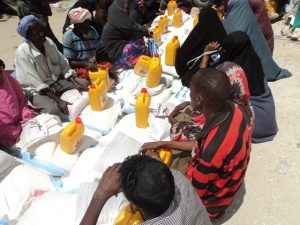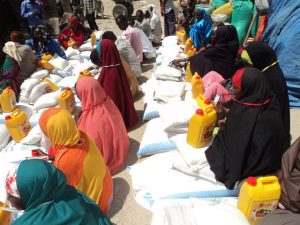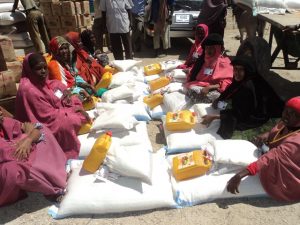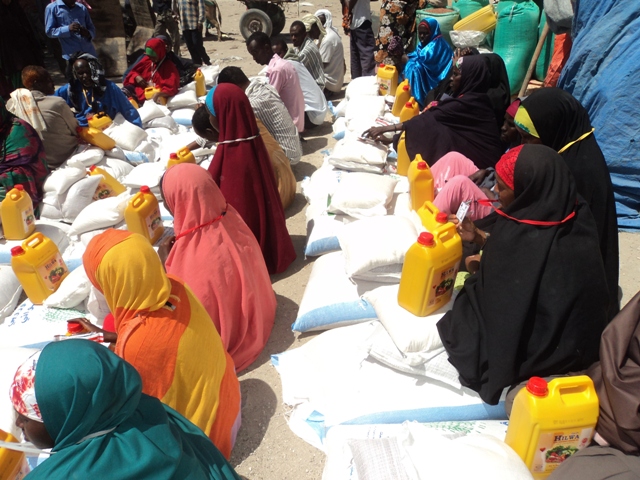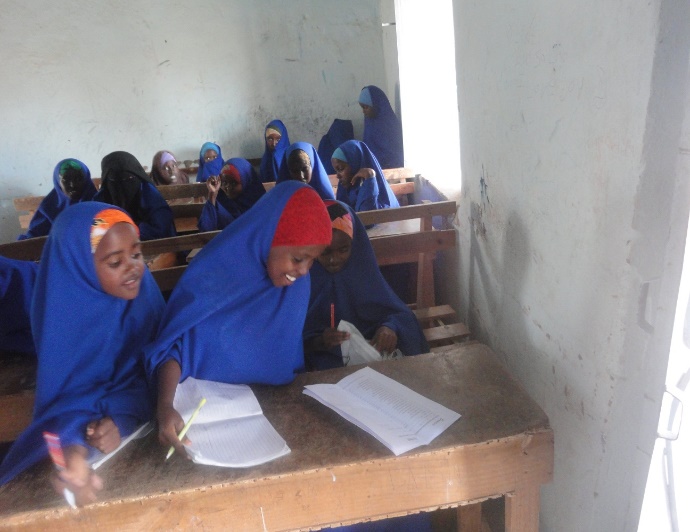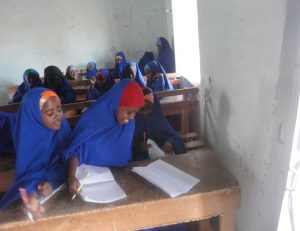The project came at an opportune time when the targeted beneficiaries were significantly affected by impacts of severe droughts that nearly culminated into famine, a situation that completely eroded the targeted beneficiaries coping mechanisms and subjected them to severe food insecurity and very high malnutrition rates.
Implementation
At the project inception, the targeted beneficiaries were mobilized and sensitized by Degsuf Foundation project staff supported by IDP committee members, women heads of households, elders and South West State Relief Committee members. Thereafter the targeted beneficiaries were selected based on their vulnerability levels (the elderly, children headed households, those with health problems, those with disability, those with no income sources). Upon selection the targeted beneficiaries were registered with all their details (names, ages, gender, village/camps where they come from) clearly captured. There after they were issued with Vouchers for redeeming their food entitlements from contracted food vendors in Baidoa where they redeemed the food items namely: Cereals (Maize mixed with sorghum), Pulses (kidney beans), Plumpy Nuts, Sugar, Vegetable Oil, continuously for 3 months.
Achievements
- A total 150 targeted HHs were reached by food that they redeemed through vouchers for 3 months successively. The food basket included Cereals (Maize mixed with sorghum), Pulses (kidney beans), Plumpy Nuts, Sugar, Vegetable Oil
- The project was implemented in close collaboration with South West State administration and Food Security and Livelihoods cluster partners in Baidoa that ensured effective implementation and limitation of duplications of the interventions.
Challenges
- There were overwhelming numbers of severe food insecure households that were not covered by the project and they kept flocking the project locations with the hope of getting considered for the project.
- There were security threats during the project owing to presence of Alshabab fighters in the outskirts of Baidoa town, however, security was beefed and the project was implemented till completion without any insecurity hitches
Recommendations
- There is strong need to continue the project in order to cover the huge food insecure and most vulnerable households that were left out of the project.
- There is need for implementation of alternative sustainable livelihood projects to cushion the most vulnerable and marginalize households against future shocks and severe food insecurity and near starvation situations
- There is need to empower women and the youth through training on small scale business enterprises to enable them meet their daily financial needs
